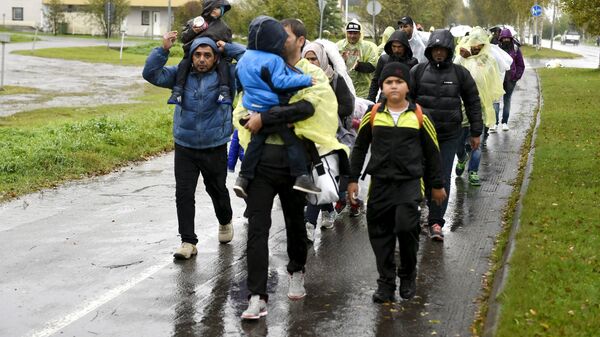A change in Finland's immigration policy has resulted in a steep rise in deportations in 2019.
In 2019, the number of deportation orders issued by the Finnish Immigration Service, Migri, rose by nearly 80 percent over the previous year, totalling 1,963, national broadcaster Yle reported.
The sharp rise reflects a lower bar for deporting immigrants who obtained their residence permits on false grounds, have committed criminal offences, terminated their studies or don't support themselves. One major group of deportees are 333 Uzbek nationals, who have landed jobs at construction sites using forged training certificates from a non-existent Soviet-era vocational college.
Deportation is almost always proposed in cases where the individual is found guilty of a crime with a maximum sentence of least one year in prison. These crimes include theft, drug violations and sexual abuse.
Another factor behind the high deportation numbers is the fact that Migri has stepped up oversight of foreigners living in Finland. This has helped expose a number of cases where migrants have received residency through sham marriages. According to Migri unit director Olli Koskipirtti, the organisation conducts regular checks in population registry data and sometimes gets tips from neighbours.
Lastly, a closer scrutiny of immigrants' income is conducted. For instance, in the case of a large family, income a single family member would not necessarily be enough.
According to immigration lawyer Ville Punto, Finland's policies became much stricter following the decision to vest the responsibility for the transfer of residence permits in Migri instead of the police.
“We also consider factors that would allow the person to stay in Finland, such as the length of time they have spent here, whether or not they have family ties, whether or not they are studying, working, how young they were when they came here and the situation in their home country,” Koskipirtti explained.
A deportation order is not implemented right away. Unless there is a crime involved, a deportee usually has up to 30 days to appeal the decision in an administrative court, which usually takes about a year. In the meantime, one may get a new job, marry or obtain new legal grounds for a residence permit.


